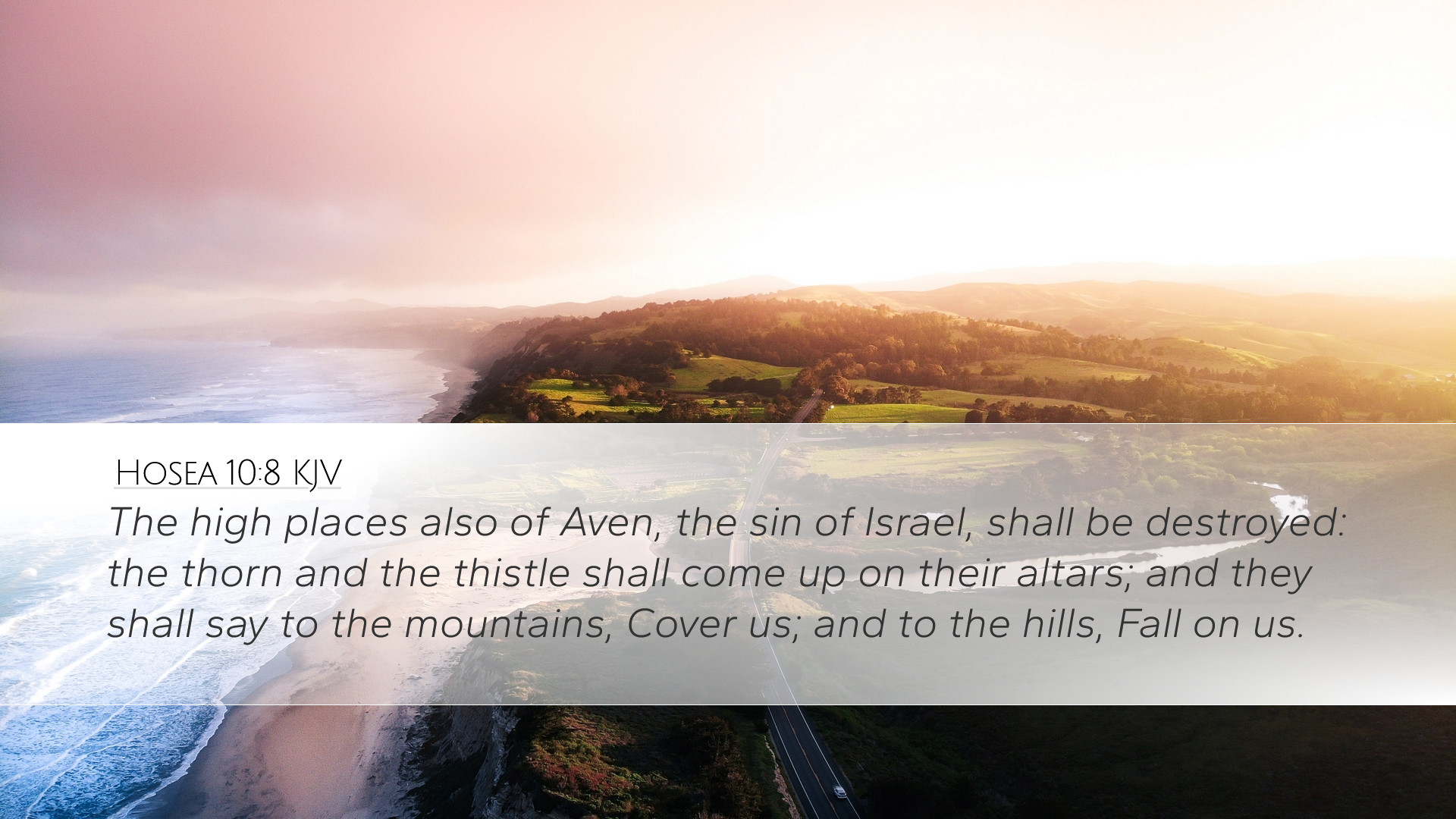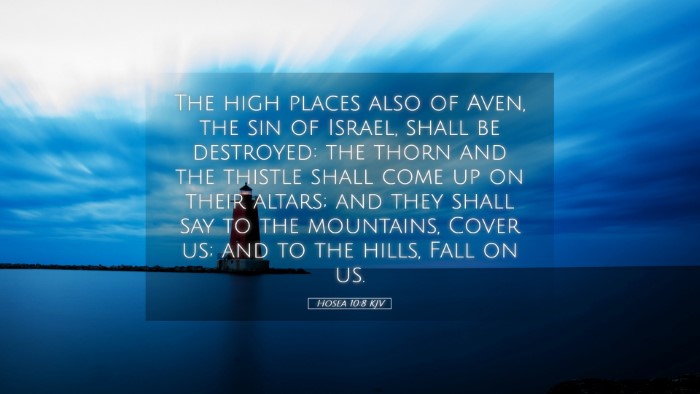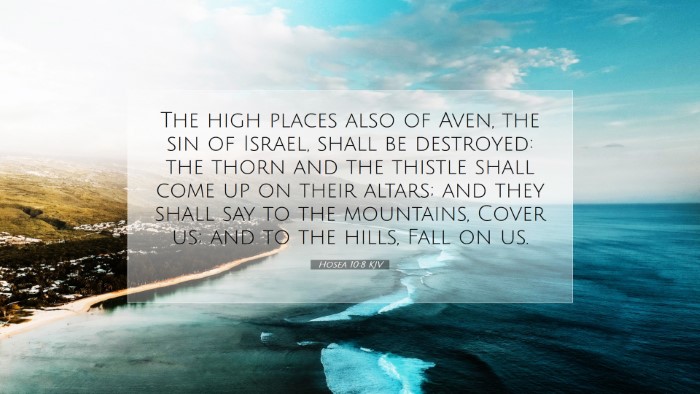Old Testament
Genesis Exodus Leviticus Numbers Deuteronomy Joshua Judges Ruth 1 Samuel 2 Samuel 1 Kings 2 Kings 1 Chronicles 2 Chronicles Ezra Nehemiah Esther Job Psalms Proverbs Ecclesiastes Song of Solomon Isaiah Jeremiah Lamentations Ezekiel Daniel Hosea Joel Amos Obadiah Jonah Micah Nahum Habakkuk Zephaniah Haggai Zechariah MalachiHosea 10:8
Hosea 10:8 KJV
The high places also of Aven, the sin of Israel, shall be destroyed: the thorn and the thistle shall come up on their altars; and they shall say to the mountains, Cover us; and to the hills, Fall on us.
Hosea 10:8 Bible Commentary
Commentary on Hosea 10:8
Hosea 10:8 states: “The high places also of Aven, the sin of Israel, shall be destroyed: the thorn and the thistle shall come up on their altars; and they shall say to the mountains, Cover us; and to the hills, Fall on us.” This verse carries profound implications regarding idolatry, the consequences of sin, and the final judgment upon Israel.
Context of Hosea
The Book of Hosea is primarily a prophetic discourse addressing the Northern Kingdom of Israel, encapsulating both the fervent love of God for His people and the grievous nature of their transgressions. Hosea's ministry unfolded during a time of great political upheaval and moral decay, urging Israel to return to God from their idolatrous practices.
Analysis of Key Phrases
-
The high places of Aven:
According to Matthew Henry, Aven is derived from the word for "vanity" or "wickedness," and represents the places of idol worship in Israel. These high places were significant centers of false worship, where the nation turned away from Yahweh to serve Baal and Asherah.
-
The sin of Israel:
Albert Barnes emphasizes that this phrase encapsulates the unfaithfulness of Israel by equating their idolatry with sin itself. It indicates a corporate sinfulness that not only condemns individual wrongdoing but also signifies a national apostasy.
-
Shall be destroyed:
Both Adam Clarke and Matthew Henry interpret this destruction not merely as a physical annihilation but as a divine judgment characterized by a silencing of false worship and the restoration of true worship to God. The idea of destruction serves as both a warning and a promise of eventual redemption.
-
Thorn and thistle:
This imagery of thorns and thistles signifies desolation and abandonment. Barnes notes that these plants spring up in neglected areas, symbolizing the desolation that will come upon the high places as God removes His hand from Israel.
-
Cover us; Fall on us:
This poignant cry reflects the desperation of the people in the face of divine judgment. Clarke indicates that this statement is reminiscent of a call for escape from judgment, mirroring passages in Revelation where people seek to hide from God's wrath.
Theological Implications
The verse extends into theological reflections about idolatry, judgment, and the human condition. It serves as a cautionary tale for contemporary believers regarding the dangers of turning away from God and the allure of adopting cultural idols.
Henry succinctly notes, "What they loved, they must lose." The high places that once represented their devotion ultimately become their place of ruin. This principle speaks volumes in any era where material and cultural idols threaten to supplant genuine devotion to God.
Pastoral Applications
-
Warning against Syncretism:
Pastors should heed the lessons from Hosea when addressing the integration of secular values with biblical truths. The high places symbolize the compromises that can lead to spiritual apostasy.
-
Call for Repentance:
Encouraging congregations to turn from personal and collective idols can be a recurring theme in sermons, reflecting Hosea's prophetic call for repentance and restoration.
-
Comfort in Judgment:
While the message encompasses judgment, it also holds a promise of hope. Reminding congregations that God's actions are motivated by love and aimed at restoration emphasizes the redemptive narrative throughout Scripture.
Conclusion
The verse in Hosea 10:8 remains eternal in its relevance, both condemning and calling for a return to a right relationship with God. The insights garnered from esteemed commentaries illuminate the path of understanding this weighty text. Reflecting on its message can aid pastors, students, and scholars alike in interpreting the depth of God's long-suffering love contrasted with His unwavering holiness.


